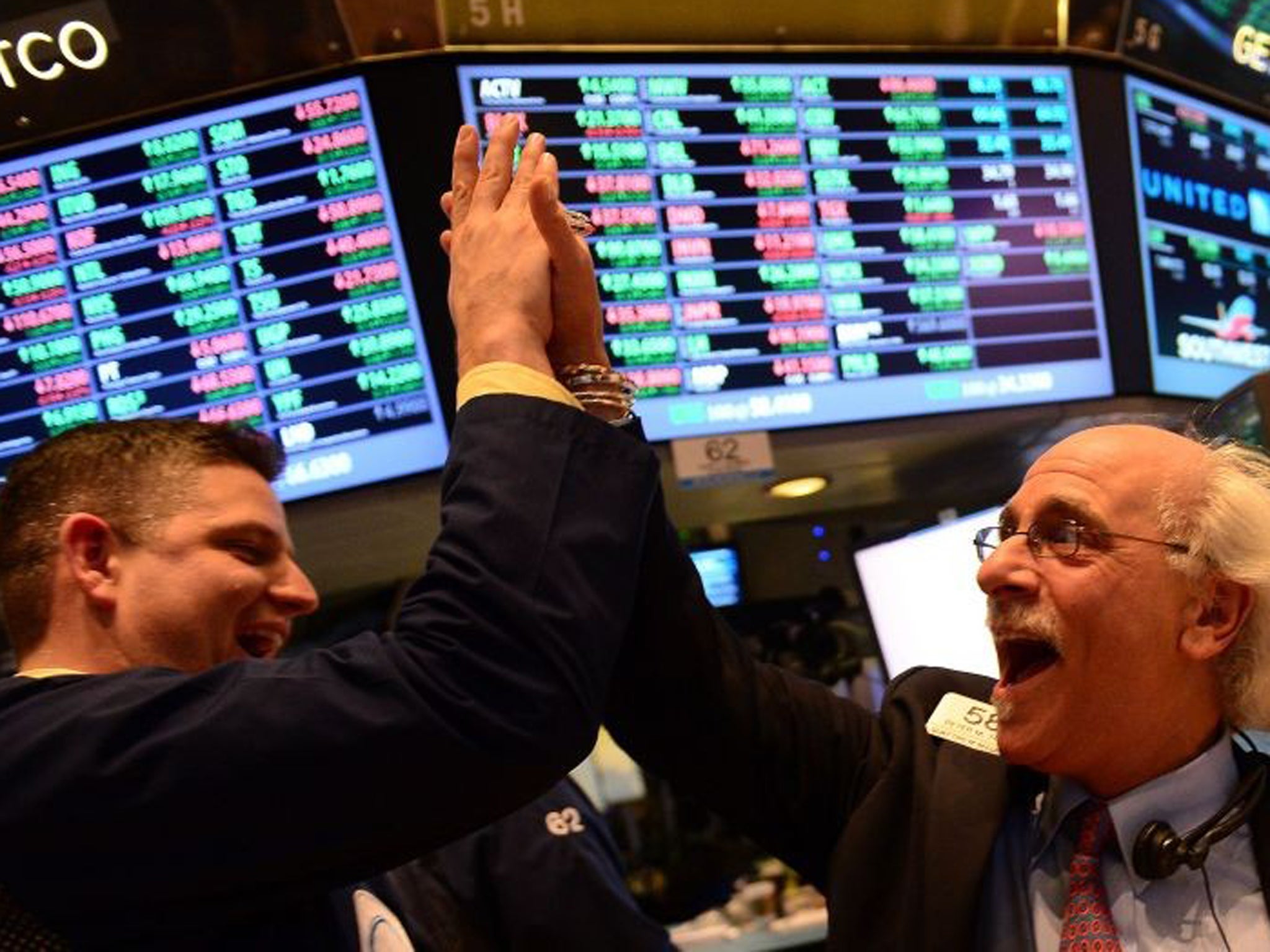Julian Knight: You can call it spring optimism, but shares feel worth another go

Your support helps us to tell the story
From reproductive rights to climate change to Big Tech, The Independent is on the ground when the story is developing. Whether it's investigating the financials of Elon Musk's pro-Trump PAC or producing our latest documentary, 'The A Word', which shines a light on the American women fighting for reproductive rights, we know how important it is to parse out the facts from the messaging.
At such a critical moment in US history, we need reporters on the ground. Your donation allows us to keep sending journalists to speak to both sides of the story.
The Independent is trusted by Americans across the entire political spectrum. And unlike many other quality news outlets, we choose not to lock Americans out of our reporting and analysis with paywalls. We believe quality journalism should be available to everyone, paid for by those who can afford it.
Your support makes all the difference.Regular readers would probably not describe me as one of life's natural optimists. But this week I have been feeling rather chipper and it's not just the onset of spring which has brought this transformation in mood. In fact, it's no particular event, rather it's what hasn't happened in the past week or so.
If the Italian election result – chaos as always – had occurred last year I reckon we'd have seen a global firesale of bonds and equities. But this time around – largely due, I think, to the promises of the European Central Bank to backstop debtor nations – the markets have taken Italy in their stride.
Likewise in the States, the to-ing and fro-ing on the edges of the fiscal cliff has barely troubled global stockmarkets. In fact, the Dow Jones Industrial has just reached an all-time high and is way north of 14,000 points. And the FTSE 100 is within 10 per cent of its all time high. We are nearly back to levels that we saw at the time of the bursting of the dotcom bubble at the start of the century.
The intervening years have been incredibly difficult for private investors – big and small – but since the tanks rolled into Baghdad in 2003 we have seen share prices double, that is a far better rate of return than you would achieve through cash savings and even in much of the UK, property.
Secretly, quietly, shares have been one of the great asset classes to own during the past 10 years and what's more it's not just capital uplift. Instead of retrenching on dividends the great habit of actually returning value to shareholders has spread around the globe. Put simply, it used to just be shares in the UK and US which paid proper dividends, now many of the great companies of mainland Europe have got in on the act – particularly those with access to key far east markets.
And in emerging economies – which in the case of much of India and China is a misnomer as they have by my book emerged – there is a growing trend to pay dividends. Putting aside the horror show of the financial crisis, these are stirring times to be a share investor.
And yet, and yet, many of us fear to tread into the stockmarket and I can understand why. When values turn south they do so very quickly and many who invested in the late 1990s in, for example, technology funds are still counting the cost. This coupled with the financial crisis put many investors off for life – totally understandable.
But with cash earning you nothing, property in most parts either declining or in an unaffordable frenzy (such as central London), the bond market in many people's views massively overvalued there is a real case for looking again at the stockmarket, but don't leave timing to chance. The best way for nervy or inexperienced investors to gain access is through collective investments or a range of solid dividend paying shares and to do it piecemeal – drip feeding cash in so if prices do fall then your most recent investment actually stretches further.
Perhaps it is just that spring is in the air that is causing this sudden positive mood, but sometimes the best signals aren't what happens but what doesn't.
Payday: Reform or die
The Office of Fair Trading is threatening payday lenders with closure and I think that is fair enough in most cases. The interest rates are usury, the contracts terms often unfair and the marketing, capitalism at its most brutal.
But in all the hoo-ha, we shouldn't forget these lenders exist because people can't access mainstream credit and times are tough. Reform is better than closure.
Join our commenting forum
Join thought-provoking conversations, follow other Independent readers and see their replies
Comments